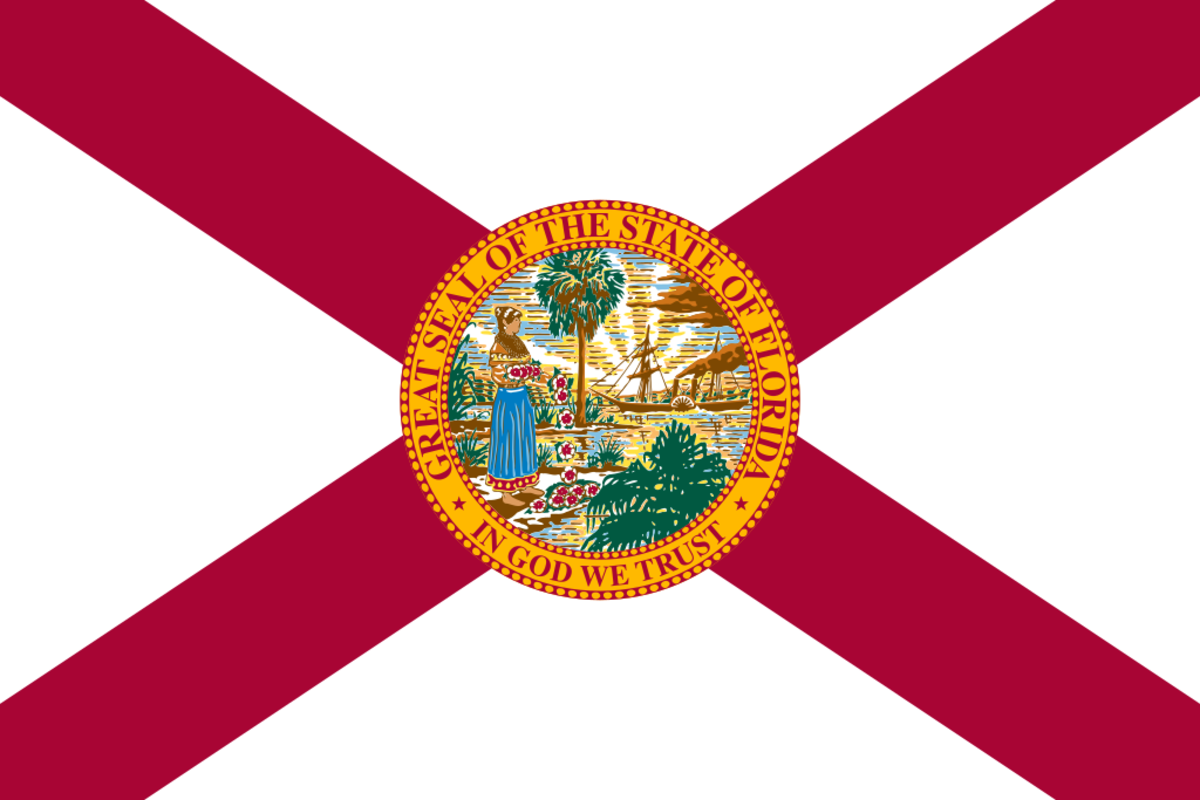Florida Workers’ Compensation Laws

Many workers in Florida get hurt or die on the job. Some of these workers do not know their legal rights and do not receive due compensation for their injuries. According to the U.S. According to the Bureau of Labor Statistics, a total of 315 fatal occupational injuries were recorded in Florida in 2021. About 35% of these fatalities involved workers in the transportation industry, compared to 38% nationally. Furthermore, men accounted for 90% of work-related deaths in the state.
In Florida, the workers’ compensation system covers all types of injuries except those that are intentionally self-inflicted or caused by drugs or intoxication. An employee may receive benefits even if they did not follow company policies, such as neglecting to wear proper safety gear. They may also be covered by insurance if they sustain injuries while outside their work premises, such as when meeting with a client.
Any injured employee is covered by the workers’ compensation system in the Sunshine State, whether full-time or part-time. The law generally does not apply to independent contractors and self-employed workers who keep a separate business.
This article provides information about the workers’ compensation system for employees who have been injured on the job in Florida, the benefits they are entitled to, the process of filing claims, and remedies for people whose claims have been denied.
Florida Workers’ Compensation Insurance Requirements
In Florida, employers have a legal obligation to provide their employees with workers’ compensation insurance. The Bureau of Compliance determines the coverage requirements based on the type of organization, industry, and number of employees. If employers fail to act in accordance with the law, they will be subject to penalties as they may be putting their workers at risk.
Non-construction employers must have workers’ compensation insurance if they have four or more employees, while construction employers must have the insurance if they have one or more, including themselves. If the employer is a local or state government or a farmer with five regular employees and/or 12 or more other seasonal agricultural labor workers for 30 days or more, they must also have insurance.
An employer must have their workers’ compensation insurance company’s information posted in their workplace to allow employees to contact the carrier and report claims by themselves. To find out if an employer carries insurance coverage, a worker may search online via the compliance database, contact the Employee Assistance and Ombudsman Office at 800-342-1741, or send an email to wceao@myfloridacfo.com.
Employees of the federal government are covered under the federal workers’ compensation system. They may visit the Office of Workers’ Compensation website or call 202-693-0040 or 904-791-3426 for more information.
Florida Workers’ Compensation Benefits
There are different benefits available to injured workers in Florida. They are the following:
Medical benefits.
Wage replacement benefits.
Temporary total disability benefits.
Temporary partial disability benefits.
Permanent impairment benefits.
Permanent total disability benefits.
Death benefits.
Medical Benefits
An employer must provide medical benefits to workers through their insurance carrier. An injured employee may obtain treatment from an authorized primary doctor and specialist. These may include:
Attendant care.
Doctor visits.
Hospitalization.
Medical tests.
Physical therapy.
Prescription drugs.
Prostheses.
A worker may be reimbursed for travel expenses to and from their authorized doctor and pharmacy. They may also be able to change their physician once within five business days of receiving their written request.
Once the injured worker has reached maximum medical improvement, they are required to pay a $10 copayment per visit for medical treatment. Maximum medical improvement occurs when the treating doctor determines that the worker’s illness or injury has healed to the extent that further improvement is unlikely. A worker is responsible for their future medical needs after their claim for medical benefits has been settled.
When it comes to choosing a pharmacy or pharmacist, Section 440.13 (3)(j), Florida Statutes, protects an injured employee’s right to do so. However, it is not necessary that the pharmacy be part of the state’s workers’ compensation program. A worker may seek out other pharmacies to fill their prescriptions instead.
Wage Replacement Benefits
An employee may receive wage replacement benefits if they are unable to work or receive lower earnings due to a work-related illness or injury. They may be eligible for these benefits if they have been disabled for over seven calendar days and are unable to perform their normal job duties as advised by their authorized doctor.
These benefits begin on the eighth day of their partial or total disability. They equal two-thirds of the employee’s pre-injury regular weekly wage. An injured worker will not receive them for the first seven days of disability. They may obtain them if they have suffered disability for over 21 days due to their job-related illness or injury. They may receive the first benefit check within 21 days of the insurance company being notified about their illness or injury and biweekly thereafter.
If the worker was injured before October 1, 2003, the amount will be calculated by using wages earned during the 91 days immediately preceding the date of injury. If the employee worked less than 90% of the 91-day period, the wages of a similar worker in the same employment who has worked the whole of the period or the full-time weekly wage may be used instead.
For injuries that occurred after October 1, 2003, the average weekly wage is calculated using wages earned 13 weeks prior to their injury, excluding the week in which they were injured. If the employee worked less than 75% of the 13-week period, the wages of a similar worker in the same employment who has worked 75% of the period or the full-time weekly wage may be used instead.
An employee does not have to pay income tax with these benefits. However, if they return to work on light or limited duty while still under the care of an authorized doctor, they will pay taxes on any wage they earn.
Temporary Total Disability Benefits
An employee may obtain temporary total disability benefits if their doctor says they cannot work due to a job-related illness or injury. The amount equals 66⅔% of their regular wages at the time they were injured and is subject to the statewide maximum reimbursement amount.
An injured worker will not receive these benefits for the first seven days of their disability. They may obtain them if they have suffered disability due to their job-related injury for over 21 days, as determined by the authorized doctor. If their injuries are severe, they may receive 80% of their regular wages for up to six months after their accident.
They may receive a total of 104 weeks of temporary disability benefits. To get an estimate of how much compensation or wage replacement benefits an injured employee may receive, they may use the disability benefit calculator.
Temporary Partial Disability Benefits
An injured employee may receive temporary partial disability benefits if the doctor states that they cannot return to work with restrictions and are unable to earn 80% of the wages they were earning at the time of their accident. They may also receive up to 104 weeks of temporary disability benefits.
Permanent Impairment Benefits
An injured worker may receive impairment income benefits if the doctor states that they are at maximum medical improvement. Maximum medical improvement means that their condition is not expected to improve significantly, and the doctor will have them evaluated for possible permanent work restrictions and an impairment rating. An impairment rating is a percentage of disability to the body as a whole. If an injured employee receives a permanent impairment rating greater than 0%, they will receive money based on it.
Permanent Total Disability Benefits
A worker may receive permanent total disability benefits if, after reaching maximum medical improvement, their severe injuries leave them permanently unable to work. They may contact the Bureau of Monitoring and Audit at 850-413-1608 to get an estimate of the amount of benefit they may receive.
Death Benefits
A deceased employee’s beneficiaries may receive death benefits of up to $150,000 if their work-related death occurred within one year of the date of the accident or five years of continuous disability. They may receive funeral benefits of up to $7,500, compensation for dependents, and educational or job training benefits for the surviving spouse.
How to File a Workers’ Compensation Claim in Florida
If a person is hurt on the job, it is their responsibility to report the injury to their employer as soon as possible. Florida laws provide a specific timeframe to report a job-related illness or injury. An injury claim may be denied if the worker fails to notify their employer within the set deadlines.
An injured employee may receive workers’ compensation and Social Security benefits at the same time. However, an offset or reduction may be applied because Section 440.15(9), Florida Statutes, states that the combined benefits may not exceed 80% of the worker’s pre-injury average weekly wage.
If a worker is receiving temporary or permanent total disability benefits, the law prohibits a worker from obtaining workers’ compensation and reemployment assistance benefits at the same time. They must first be medically able and available to work to qualify for reemployment. For more information regarding reemployment assistance, they may visit the Florida Commerce website or download the Reemployment Services Program brochure.
When Is the Deadline for Workers’ Compensation Claims in Florida?
After they have been hurt on the job or become aware of their illness or injury, workers have 30 days to report to their employer in Florida. Their claims may be jeopardized if they fail to report within the timeframe. Their failure to report may also be used as a defense against their claims. They may lose their eligibility for benefits one year from the date they last received an approved medical treatment or wage replacement check.
An employee generally has two years from the date of their illness or injury to file a claim for workers’ compensation benefits. If they were hurt before January 1, 1994, the statute of limitations is the same. However, if a worker was injured on or after that, the claim is closed one year from the date of their last medical treatment or payment of compensation.
Step-By-Step Guide on Filing a Workers’ Compensation Claim in Florida
After a job-related injury, obtaining workers’ compensation benefits may be a challenge, but it does not have to be. Knowing how to file claims in Florida may help avoid delays, claim denials, and other potential issues during the process. This section explains the key steps to initiate a claim and protect injured employees’ right to receive benefits.
1. Report the job-related illness or injury to the employer as quickly as possible.
Section 440.185, Florida Statutes, requires an employee to report their illness or injury to their employer within 30 days from the date their accident occurred or the doctor said they suffered from a work-related injury. They may be unable to claim workers’ compensation benefits if they fail to report within the timeframe.
On the other hand, the employer must report their employee’s illness or injury no later than seven days after learning of it. If they do not report, the worker must contact the Employee Assistance and Ombudsman Office at 1-800-342-1741 for assistance.
The insurance company must report claims to the Division of Workers’ Compensation within 14 days after the employer reports an injury to them. The injury must have resulted in more than seven consecutive days of lost work time.
2. The employee must receive a brochure explaining the worker’s rights and benefits under the law from the insurance company.
The insurance carrier must send a brochure explaining the employee’s rights and benefits under the workers’ compensation law within three days after the employer or employee informs them of the job-related injury.
3. The worker must file the Petition for Benefits form.
The worker must file the Petition for Benefits form with the Office of Judges for Compensation Claims, which may be obtained online.
4. The employee must obtain medical treatment.
According to 440.13(2)(a), Florida Statutes, the employer must provide their employee with medically necessary remedial treatment, care, and attendance for a period that the nature of the injury or process of recovery may require. The employee must request initial treatment or care. The employer or insurance company must be given a reasonable time period to provide it. The employer may authorize a doctor at the time of the injured worker’s accident, while the insurance company will authorize the follow-up treatments.
If an employee has sustained injuries that result in emergency treatment, they must inform the staff that they hurt themselves on the job. They must also provide the name and phone number of their employer or insurance company.
The insurance company must respond to requests for medical treatment by authorized healthcare providers within three business days after receipt. The law further requires the medical provider to submit all authorized bills to the employer’s insurance company. If their employer or insurance carrier does not respond to their request for medical treatment or the injured employee is billed for such treatment, the worker may contact the Employee Assistance and Ombudsman Office for assistance. They must also not skip medical appointments to continue receiving benefits.
5. The worker must sign and return the fraud statement provided by the insurance company.
The employee must sign and return the fraud statement provided by the insurance carrier.
6. The employee must obtain a copy of their accident report or first notice of injury from their employer.
The employee must obtain a copy of their accident report or first notice of injury from their employer and ask the insurance adjuster or company for their claim number.
7. The worker must provide their employer with a copy of the Medical Treatment/Status Reporting form after each medical appointment.
The physician must submit a proposed course of treatment to the insurance company to determine whether it would be recognized as reasonably prudent.
They must complete the Florida Workers’ Compensation Uniform Medical Treatment/Status Reporting form (DFS-F5-DWC-25). This document provides information to the employee, employer, and insurance carrier about the worker’s medical status, management and treatment plan, functional limitations and restrictions, maximum medical improvement and permanent impairment rating, and follow-up visits.
What Should One Do If a Workers’ Compensation Claim in Florida Has Been Denied?
If the insurance company in Florida does not provide workers’ compensation benefits or denies claims, the injured worker may contact the Employee Assistance and Ombudsman Office by calling their toll-free hotline at 1-800-342-1741 or visiting their website. Its specialists can help workers understand their rights and responsibilities and the procedures for filing a Petition for Benefits with a judge of compensation claims. They may address concerns and resolve disputes related to claims. The worker may visit the office in person. They may find a list of the statewide locations of the office by visiting its web page. They may also submit specific questions by sending an email to wceao@myfloridacfo.com.
An employer may be held liable under 440.11(1)(a), Florida Statutes, for failing to purchase workers’ compensation insurance when they are required to do so by law. The employee may elect to bring suit against them for benefits or maintain an action at law for damages. They may report their employer’s non-compliance through the referral website.
An employee may obtain further information regarding the workers’ compensation system in Florida by visiting the workers’ compensation web page, which contains the online injured worker workshop presentation. They may also find answers to frequently asked questions.
Resources for Injured Workers in Florida
The state of Florida requires employers to provide workers’ compensation insurance to protect employees from risks to their safety. But even with preventive measures in place, workplace accidents may still happen, which come at a great cost to workers and employers. In the aftermath of an on-the-job injury, victims may find it difficult to figure out the workers’ compensation system and process of filing claims. This section presents two organizations that aim to help people navigate the legal complexities and obtain the support they need.
Volunteer Lawyers for Project for Southern District of Florida
The Volunteer Lawyers for Project is an initiative by the District Court of the Southern District of Florida. It provides volunteer attorneys for pro se litigants. People seeking the assistance of a lawyer may participate in the program by submitting a request directed to the judge in their case and mailing the form to the court. The court will then direct their case to be placed for consideration by volunteer attorneys.
Jacksonville Area Legal Aid Employment Law Project
The Jacksonville Area Legal Aid’s Employment Law Project advocates for the rights of disadvantaged and low-wage workers through education, legal advice, representation by volunteer attorneys, and other forms of advocacy. It also offers assistance on matters related to workplace discrimination, harassment, and wrongful termination. The organization partners with staffing agency WorkSource to conduct a Workers’ Rights Clinic every second Wednesday of each month. For more information on applying for legal help, clients may call 356-8371.
Expertise.com StaffAuthor
Step into the world of Expertise.com, your go-to hub for credible insights. We don't take accuracy lightly around here. Our squad of expert reviewers, each a maestro in their field, has given the green light to every single article you'll find. From rigorous fact-checking to meticulous evaluations of service providers, we've got it all covered. So feel free to dive in and explore. The information you'll uncover has been stamped with the seal of approval by our top-notch experts.




